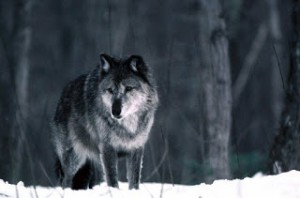
Britain’s uplands like Dartmoor and Exmoor should be returned to the wild for the benefit of human wellbeing, an Exeter conference has been told.
Letting trees grow again on bare uplands, allowing the seabed to recover from trawling, and bringing back missing animals would help wildlife and people, author and environmentalist George Monbiot told an event at the University of Exeter last week.
“Rewilding offers us a big chance to reverse destruction of the natural world,” Mr Monbiot said.
As reported in the WMN last autumn Monbiot, speaking at a conference of national parks chiefs, blamed sheep for “ruining” Dartmoor.
“Sheep are just about the most destructive land use that exists,” he told the national parks conference, hosted last year by Dartmoor National Park.
Lynx and “even, one day, wolves” are on his wish list for the upland areas of the Westcountry
Last week he was joined on the platform at Exeter University by leading conservationist Alan Watson Featherstone, founder of the charity Trees for Life.
They highlighted the benefits of rewilding – the restoration of damaged natural ecosystems, and the return of keystone species – including for people’s wellbeing.
Mr Featherstone said: “In the Highlands of Scotland we have an opportunity to reverse environmental degradation … offering a lifeline to wildlife including beavers, capercaillie, wood ants and pine martens, and restoring natural forests and wild spaces for our children and grandchildren.”
The event – organised by the Network of Wellbeing (networkofwellbeing.org) with the University and Community Initiatives in Exeter – explored the links between rewilding and wellbeing, and highlighted ways in which people can get involved in initiatives in their own communities.
Today few areas of the world are truly wild. Long-term deforestation and overgrazing by too many deer and sheep has left much of Britain depleted and barren, with wildlife in retreat or missing.
Some isolated efforts are being made to reverse the decline, including the high-profile release of beavers into the River Otter by the Devon Wildlife Trust.
In Scotland, native forests are being restored at many Highland sites, and birds of prey such as sea eagles, ospreys and red kites are being returned.
In future we could see the return of apex predators, which help to keep browsers like deer under control.
Trees for Life believes that the Eurasian lynx – already reintroduced to areas of Europe such as the Alps and Jura mountains – is a realistic candidate for reintroduction.
The lynx offers little threat to sheep and none to humans, but is a specialist predator of roe deer, a species which has multiplied and which holds back the natural regeneration of trees through intensive browsing.
Mr Monbiot’s new book, Feral, lays out an approach in which Nature is allowed to find its own way.
He is a key supporter of Rewilding Britain, a charity working for the mass restoration of ecosystems in Britain, on land and at sea (rewildingbritain.org.uk).
People can follow online conversation around the rewilding events on Twitter by using the hashtag #RewildingWell.
Source: Are you ready to see lynx and wolves on Dartmoor and Exmoor? | Western Morning News
